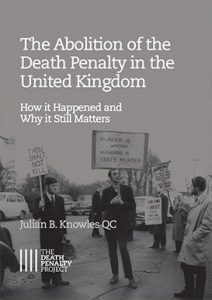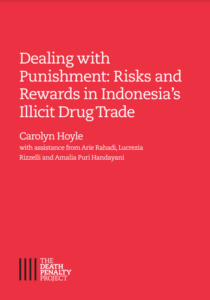The Abolition of the Death Penalty in the United Kingdom (2015)
- Reports and Studies
- 5 Nov 2015
In November 2015 the UK celebrated the 50th anniversary of the enactment of the Murder (Abolition of the Death Penalty) Act 1965, which suspended and effectively abolished the death penalty for murder in England, Scotland and Wales.
To mark a half-century of abolition in the UK, we launched a monograph by Julian B. Knowles QC: The Abolition of the Death Penalty in the United Kingdom: How it Happened and Why it Matters“. Drawing on his own extensive advocacy experience in individual death row cases, Knowles traces the history of capital punishment in the UK, and in particular, the sequence of events that led to its abolition and analyses the impact that domestic and international law would have on any attempt to reintroduce it.
Many lessons can be learnt from the United Kingdom’s experience. The movement to abolition was brought about by a combination of factors, including Parliamentary campaigning; changing attitudes towards social and penal affairs; and significantly, public disquiet over three controversial executions in the 1950s and a shocking series of miscarriages of justice cases that came to light in subsequent years.
What will lead to abolition of the death penalty in the remaining retentionist states is not predictable. Abolition in the UK was ultimately achieved through the political process –Parliament and the individual consciences of MPs taking a political and moral lead. In light of contemporary human rights standards, political leaders in retentionist states should consider moving away from the death penalty. Critically, experience has demonstrated that miscarriages of justice occur in every system, however sophisticated, carrying the risk that innocent people will be executed. This alone is one reason why many countries, including the UK, have abolished the death penalty.





